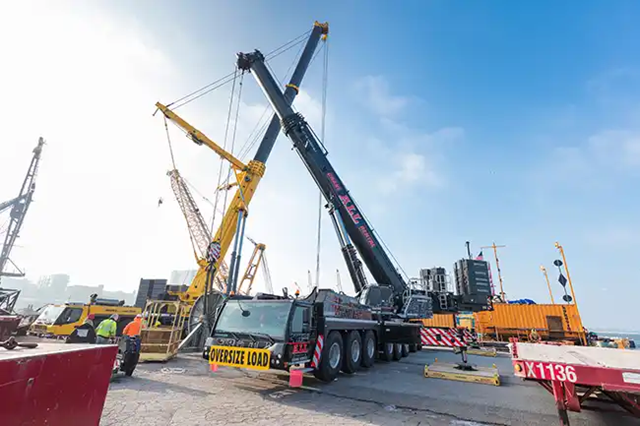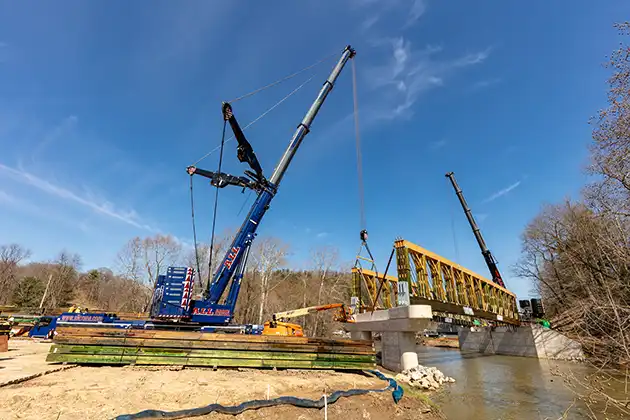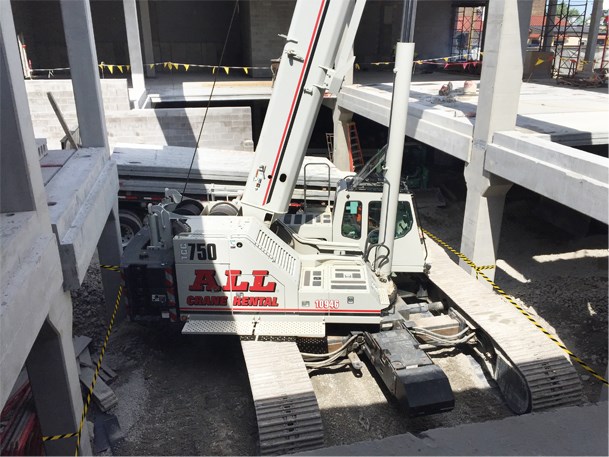Still have questions? Review our Shared Equipment Program FAQs
What is a Shared Equipment Program (SEP)?
Under a Shared Equipment Program (SEP), sometimes called Integrated Project Delivery (IPD), a project’s general contractor acts as the primary renter of all lift equipment for the job and then rents it to the subcontractors— a method that helps to eliminate waste, cut costs, improve productivity, and create positive outcomes. This collaborative approach can save up to 30% on construction costs and can accelerate project completion dates.
Is SEP the same as a sole supplier agreement?
There is a similarity, but also a crucial difference. First, the similarity: under SEP, ALL is, indeed, the only supplier of lift equipment to the project. Now the difference: only the general contractor rents the equipment from ALL, then coordinates distribution to subcontractors. In a typical sole supplier arrangement, individual subcontractors are still responsible for procuring their equipment (using the same supplier), but must negotiate their own supply. The added benefit of SEP is that, with a single renter (the general contractor) acting as a single point of contact for subcontractors to access equipment, additional efficiencies are created, saving time and money.
What makes ALL ideal for SEP partnership?
The ALL Family of Companies is the nation’s largest privately owned renter and seller of cranes, with all types and sizes of cranes and other lift equipment available from its vast network. This variety is essential for the successful implementation of Shared Equipment Programs. ALL offers partners the ability to source lift equipment as uniquely nimble as compact mini cranes or as large as 900-ton ATs and 1,000-ton crawlers, plus tower cranes, boom lifts/ aerials/MEWPs, and boom trucks. Whatever the individual needs, from task specific to broad and general, the ALL fleet is a perfect supply menu, as deep as it is varied. Beyond these extensive equipment resources, the company has the experience and willingness to collaborate during the SEP project. We’re thoughtleaders in this space and already have the processes in place to seamlessly execute a SEP partnership.
What are the keys to a successful SEP?
The main ingredients are coordination, cooperation, and communication. The whole concept is about teamwork, with each stakeholder a fully engaged participant. Significant savings are achieved by careful scheduling. No entity is left wanting, as the SEP allows for flexibility in the total budget. Scheduling requires meticulous strategic planning, daily meetings to discuss tasks for the coming day, and weekly projection meetings to forecast need in the coming weeks. This commitment to ongoing communication helps ensure that every team is on track to achieve its goals.
How will ALL support the project?
The ALL Family of Companies is not just an equipment provider. It is a collective of seasoned category professionals, and that vast knowledge base comes standard with any rental, including SEP agreements. ALL long ago divided their fleet into dedicated equipment categories headed by experienced, top-level managers. Our team—whether in tower cranes, truck cranes, or aerials—will sit at the table with general contractors, offering their particular experience to help spec the right equipment to meet specific challenges of a project and keep costs in check. This teamwork also includes equipment maintenance. ALL’s commitment to maintaining a rent-ready fleet doesn’t waver during a SEP agreement. ALL mechanics travel to your site to maintain and repair equipment.
Who benefits from SEP?
All project partners including owners, contractors, and trade partners become stakeholders in the project, profiting from success. Project owners save time—often measured in months—and money—often measured in millions of dollars. The general contractor gets a volume discount on equipment from a single source who can then lend their professional leadership to the project. One equipment source also means a less congested jobsite. Subcontractors enjoy equipment rental savings and assurances that the equipment they need will be available when they need it. SEP also includes regular maintenance checks, meaning increased uptime and improved operational efficiency across the board.



